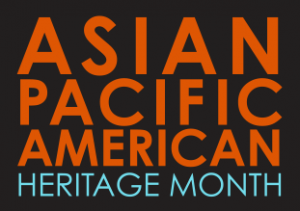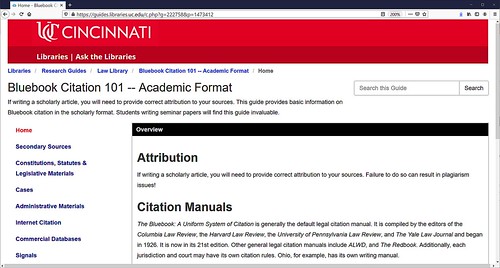This week in the Law Library we’re changing over the way library resources are accessed, looking ahead to summer and graduate Lexis, Westlaw, and Bloomberg Law access, and celebrating Asian American and Pacific Islander (AAPI) Heritage Month.
Access Change to Library E-Resources
User access to library electronic resources other than to Lexis, Westlaw, Bloomberg Law, the West Academic Study Aids, and Lexis Overdrive is changing beginning May 3rd. URLs containing the library proxy will eventually need to be changed to the new server address. What does this mean to you?
- You don’t need to change anything in order to access Lexis, Westlaw, Bloomberg Law, the West Academic Study Aids, or Lexis Overdrive Study Aids
- You don’t need to change anything if you access library electronic resources through the online catalog, guides, or our website (we are making these changes behind the scenes)
- If you have bookmarked links to electronic resources other than the exceptions above, you will need to change the URLs before December
- May 3rd: server address change:
- From: http://proxy.libraries.uc.edu/login?url=
- To: (May 3rd): http://uc.idm.oclc.org/login?url=
- The proxy tools page has been updated to assist with editing URLs
- January 2022: outdated URLs will no longer work for library resources
- May 3rd: server address change:
Accessing Law Library Study Aids
CALI
No change. If using CALI, you will need to create an account (if you have not already done so) using a Cincinnati Law authorization code. You can obtain this code from a reference librarian.
Lexis OverDrive
No change. If accessing study aids from Lexis OverDrive, you will need to login using your UC credentials.
West Academic
No change. To create an account, click the Create an Account link at the top right corner of the Study Aids Subscription page. Use your UC email as the email address. Once you have filled in the required information to set up an account, you will need to verify your email address (they will send you a confirmation email that you will need answer to verify the email address — be sure and check your junk mail). Once you have created an account and logged in, you can use the links below to access individual study aids or you can access all study aids through https://subscription.westacademic.com.
Wolters Kluwer
The Wolters Kluwer study aids are impacted by the change to access e-resources. If you access them from our website or one of our guides you don’t need to do anything. If you have linked to study aids from this particular collection, you will need to change the link by January. The old link will work through December.
Access to Lexis, Westlaw, & Bloomberg Law for Summer or After Graduation
Summer 2021 Access
Lexis
If you’re already registered for Lexis, you don’t need to do anything else to get Summer Access. Access is unlimited for any purpose.
Westlaw
You can use Westlaw over the summer for non-commercial research. You can turn to these resources to gain understanding and build confidence in your research skills, but you cannot use them in situations where you are billing a client. Examples of permissible uses for your academic password include the following:
- Summer coursework
- Research assistant assignments
- Law Review or Journal research
- Moot Court research
- Non-Profit work
- Clinical work
- Externship sponsored by the school
B-Law (Bloomberg Law)
If your workplace has a Bloomberg Law account, you are expected to use that, but there are no restrictions on your student Bloomberg accounts over the summer.
Post Graduation Access
Lexis
When you graduate, you’ll automatically have seamless Lexis+ access for 6 months, excluding public records. Continue to use your law school username and password while you prepare for the bar exam and employment. Plus, access exclusive resources and a Rewards program for graduates.
Lexis Aspire Program
Any graduating student who has verifiable employment with a non-profit organization can apply via Lexis ASPIRE program for 12 months of free Lexis access. Students can visit http://www.lexisnexis.com/grad-access for details on either of these offers.You’ll also have access to exclusive resources related to the transition from law school to employment and a Graduate Rewards Program.
Westlaw
May 2021 Graduates will see grad access info when they sign on to the Westlaw Law School Portal. Access is “normal” until May 31st. Starting June 1-Nov 30th graduates will have 60 hours of usage per month for 6 months. Direct link to extend for grad access is https://lawschool.westlaw.com/authentication/gradelite
All graduates will also automatically retain access to a number of job searching databases for 18-months following graduation for 1-hour a month. Please contact the Westlaw Representative for more information.
B-Law (Bloomberg Law)
2021 Graduating students will have unlimited and unrestricted Bloomberg access until Nov. 30, 2021.
May Arguments at the United States Supreme Court
From SCOTUS Blog:
Tuesday, May 4, 2021
- Terry v. U.S., — whether pre-August 3, 2010, crack offenders sentenced under 21 U.S.C. § 841(b)(1)(C) have a “covered offense” under Section 404 of the First Step Act.
May Is Asian American and Pacific Islander Heritage Month!
This month we’re celebrating Asian/Pacific American Heritage Month! After decades of celebrating Asian/Pacific American Heritage Week, Congress finally passed Public Law 102-450 which annually designated May as Asian/Pacific American Heritage Month. The month of May was chosen to commemorate the immigration of the first Japanese to the United States on May 7, 1843, and to mark the anniversary of the completion of the transcontinental railroad on May 10, 1869.
Asian American Pacific Islander Bar Associations:
- Asian Pacific American Bar Association of Central Ohio
- Asian American Bar Association of Ohio
- Asian Pacific American Bar Association of Southwest Ohio
- National Asian Pacific American Law Student Association
- National Asian Pacific American Bar Association
National Association for Law Placement (NALP) Partner Demographics
From the 2020 NALP Report on Diversity in Law Firms:
Total: 42, 438
Percent Asian: 4.08%
Percent Asian Women: 1.62%
100 or Fewer Lawyers in the Firm:
Total: 1,459
Percent Asian: 3.70%
Percent Asian Women: 1.71%
101-250 Lawyers:
Total: 5,910
Percent Asian: 3.23%
Percent Asian Women: 1.17%
251-500 Lawyers:
Total: 8,263
Percent Asian: 3.07
Percent Asian Women: 1.32%
501-700 Lawyers:
Total: 3,582
Percent Asian: 3.91%
Percent Asian Women: 1.70%
701+ Lawyers:
Total: 23,224
Percent Asian: 4.70%
Percent Asian Women: 1.83%










